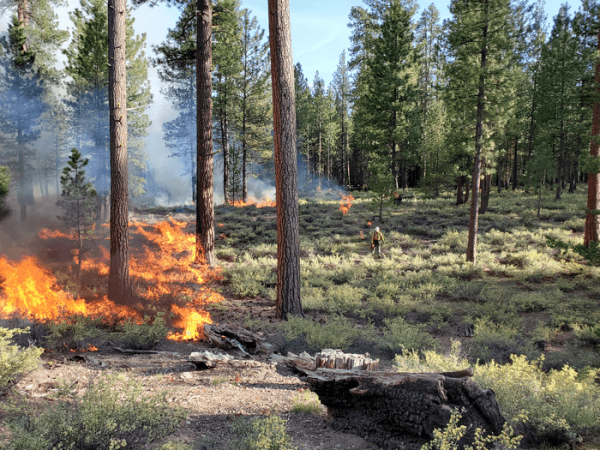Oregon State University scientists and collaborators from throughout the West say that thinning and prescribed burning are crucial parts of adaptive management for seasonally dry, fire-dependent forests such as those east of the Cascade crest.
In a paper published this week in Ecological Applications, Andrew Merschel, James Johnston and Meg Krawchuk of the OSU College of Forestry also join other researchers in acknowledging the role of Indigenous fire stewardship in past and present landscapes and the value of restoring that stewardship – intentional low-severity burning that reduces fuels and is important culturally.
The Oregon State team was among dozens of scientists across the western United States who teamed up on three papers that the journal published simultaneously, all dealing with approaches for managing fire-dependent forests following a century of fire suppression and in the face of climate change. Collectively the scientists analyzed more than 1,000 published papers going back more than 100 years.
“Exceptionally hot, dry weather has already fueled dozens of fires across the west in 2021, including the 400,000-acre Bootleg fire in south central Oregon,” said Krawchuk, a forest ecologist who has been researching approaches for societal adaptation to fire for years. “A hundred years of federal policy that prevented regular surface fires in these forests has led to forests that are too dense and packed with brush and allow fires to ignite and spread easily. Our team wants to give land managers and others across the region a clear picture of the best available science and how they can use it to make good decisions about managing landscapes.”
Read more at Oregon State University
Image: Prescribed burns are an important part of wildfire management. (Credit: Photo by Jason Pettigrew. Oregon Department of Forestry)


